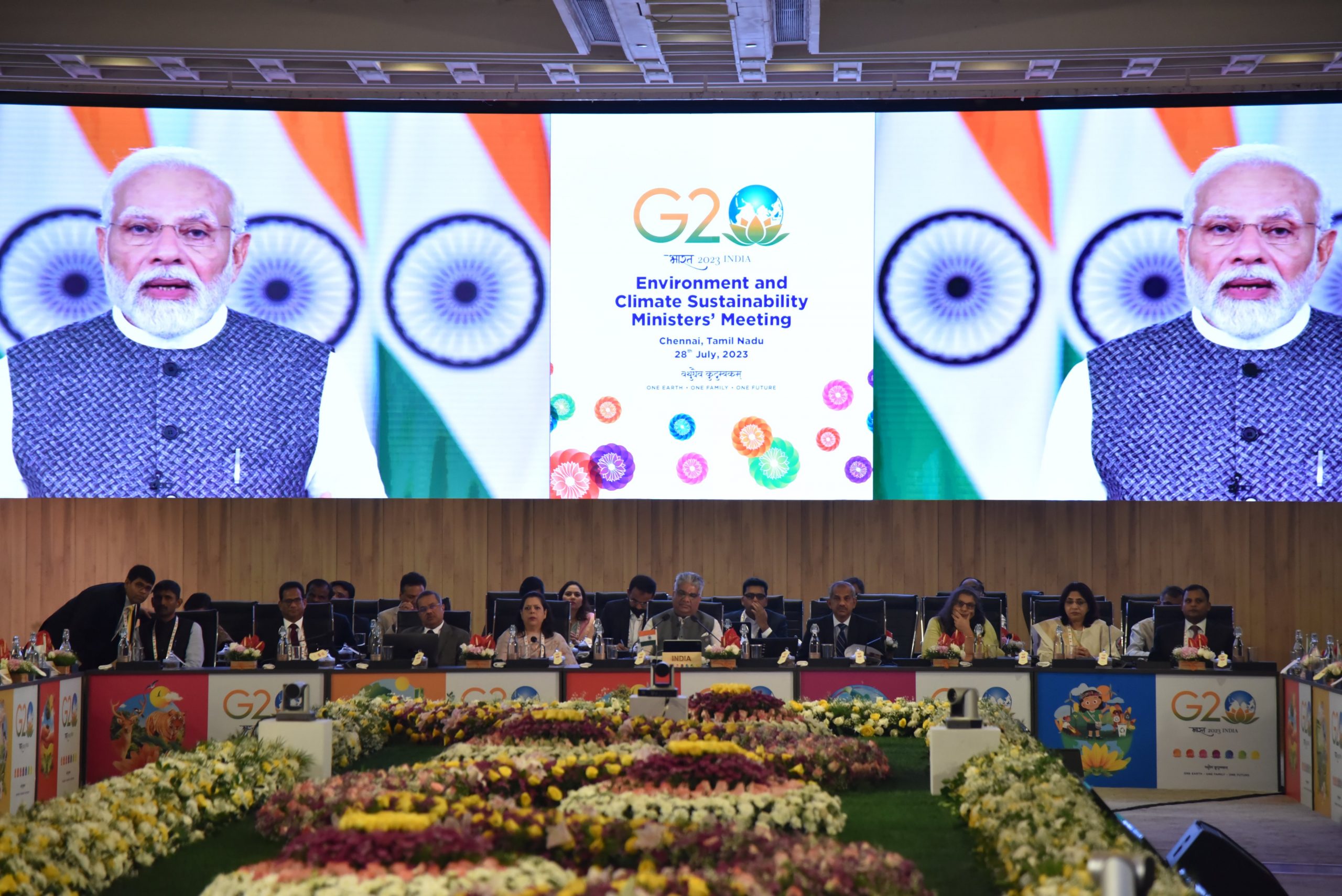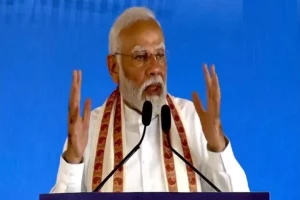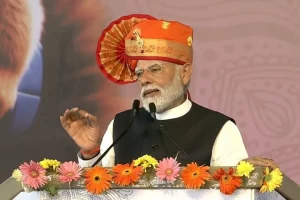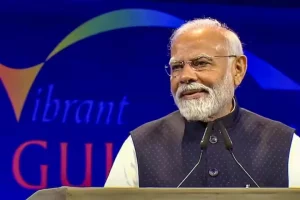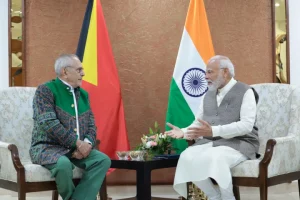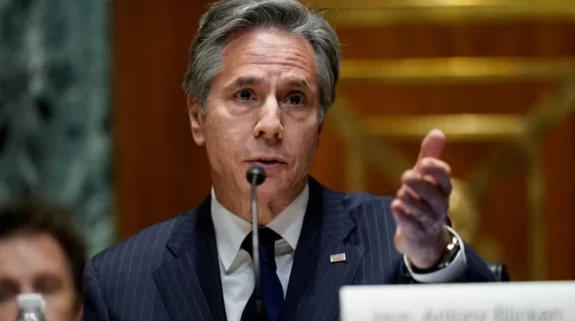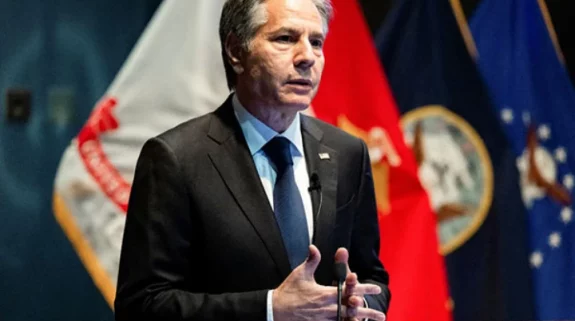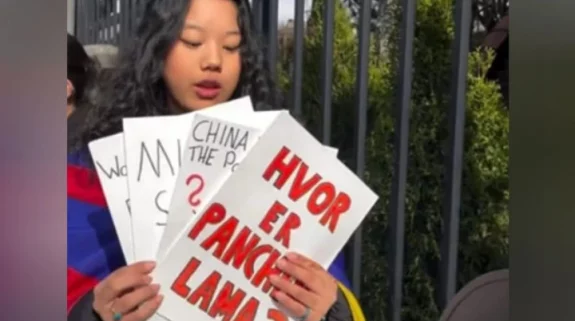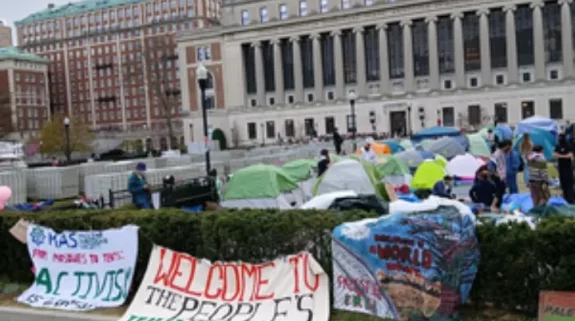Prime Minister Narendra Modi on Friday made out a strong case for more action by the advanced nations to help the countries of the Global South to develop in an environment-friendly way amid the challenges of climate change.
Addressing the G20 Environment and Climate Ministers meeting in Chennai via video, PM Modi said, “Based on India’s traditional knowledge, I would emphasize that Climate Action must follow “Antyodaya”. That is, we must ensure the rise and development of the last person in society.”
“Countries of the Global South are particularly impacted by Climate Change and environmental issues. We need enhanced action on commitments under the “UN Climate Convention” and the “Paris Agreement”. This will be crucial in helping the Global South fulfil its developmental aspirations in a climate friendly way,” he explained.
The Prime Minister also gave the clarion call for better management of the world’s ocean resources and the need for a legal pact to end plastic pollution.
“Our oceans support the livelihoods of over three billion people across the globe. They are a crucial economic resource, especially for the “Small Island States”, whom I prefer to call “Large Ocean Countries”. They are also home to extensive biodiversity. Therefore, responsible use and management of ocean resources is of vital importance. I look forward to the adoption of “G20 High Level Principles for a Sustainable and Resilient Blue and Ocean-based Economy”. In this context, I also call on the G20 to work constructively for an effective international legally-binding instrument to end plastic pollution,” PM Modi said.
The Prime Minister referred to the importance that centuries-old Indian tradition has accorded to the conservation of Mother nature, to highlight the essential steps that are required to fight global warming.
“We should not forget our duties towards mother nature. Mother nature does not favour a fragmented approach. She prefers “Vasudhaiva Kutumbakam” – One Earth, One Family, One Future,” the Prime Minister remarked.
“Let me begin by quoting from Thirukural, written about two thousand years ago. The great Saint Thiruvalluvar says:“नेडुंकडलुम तन्नीर मै कुंडृम तडिन्तेडिली तान नल्गा तागि विडिन”. It means, “Even the oceans will shrink, if the cloud that has drawn its waters up, does not give it back in the form of rain”. In India, nature and its ways have been regular sources of learning. These are found in several scriptures as well as oral traditions. We have learnt,पिबन्ति नद्य: स्वयमेव नाम्भ:, स्वयं न खादन्ति फलानि वृक्षा:। नादन्ति सस्यं खलु वारिवाहा:, परोपकाराय सतां विभूतय:।।
That is, “Neither Rivers drink their own water nor Trees eat their own fruits. Clouds also don’t consume grains produced by their water”. Nature provides for us. We must also provide for nature. Protecting and caring for Mother Earth is our fundamental responsibility. Today, it has taken the shape of “Climate Action” because this duty was ignored by many for a very long time,” PM Modi explained.
The Prime Minister also highlighted how India has led the way through its ambitious “Nationally Determined Contributions” in the fight against climate change.
“India achieved its installed electric capacity from non-fossil fuel sources, nine years ahead of the target of 2030. And, we have set the bar even higher through our updated targets. Today, India is one of the top 5 countries in the world, in terms of installed renewable energy capacity. We have also set a target of attaining “Net Zero” by 2070. We continue to collaborate with our partners through alliances including International Solar Alliance, CDRI, and the “Leadership Group for Industry Transition,” he said.
India is a mega-diverse country. We have consistently been at the forefront in taking action on biodiversity conservation, protection, restoration and enrichment. I am happy that through the “Gandhinagar Implementation Roadmap and Platform”, you are recognizing restoration in priority landscapes impacted by forest fires and mining.
He also said that India has recently launched the “International Big Cat Alliance” for conservation of seven big cats of the planet. It is based on the country’s learnings from Project Tiger, a pioneering conservation initiative. As a result of Project Tiger, 70% of the world’s tigers today are found in India. The nation is also working on Project Lion and Project Dolphin, he added.
PM Modi also explained how India’s initiatives are powered by people’s participation.
“Mission Amrit Sarovar” is a unique water conservation initiative. Under this mission, more than 63,000 water bodies have been developed in just about one year. This mission is implemented entirely through community participation, and aided by technology. The country’s “Catch the Rain” campaign has also shown excellent results. To conserve water, more than two 280,000 water harvesting structures have been constructed through this campaign. In addition, nearly 250,000 re-use and recharge structures have also been constructed.
“All this was achieved through people’s participation and focused on local soil and water conditions. We have also effectively utilized community participation in the “Namami Gange Mission” for cleaning the river Ganga. This has led to a major achievement in the reappearance of the Gangetic Dolphin in many stretches of the river. Our efforts in wetland conservation have also borne fruit. With seventy five wetlands designated as Ramsar sites, India has the largest network of Ramsar sites in Asia,” the Prime Minister explained.
PM Modi also mentioned his the Mission LiFE – Lifestyle for Environment. Mission LiFE, that he launched last year along with the UN Secretary General with the aim of making it a global mass movement with the participation of every individual.
“In India, environment-friendly actions by any person, company or a local body will not go unnoticed. It can now earn them green credits under the recently announced “Green Credit Programme”. This will mean that activities like tree plantation, water conservation, and sustainable agriculture can now generate revenue for individuals, local bodies and others,” the Prime Minister explained.






